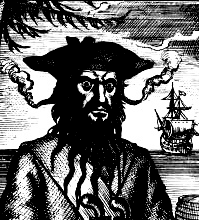" The Land Rover stopped. It is four forty-five.
‘Must be somewhere here,’ the Englishman shouted. He jumped down from the Land Rover. The headlights were on. Their light, cool and lifeless, moved reluctantly on a horizontal line. With his torch, the Englishman examined the wire. Then he tripped on the thick rope: ‘Sabotage,’ he shouted to those in the Land Rover:
They all jumped down, torches in hand. They saw the thick rope riding the wire and touching the soil, caressing it. Three yards away the beams fell on a human body. The muscles were contracted, the face buried amid a thicket of thorns.
‘Rascal. Since you don’t know the job, why did you get involved?’ He bends over him.
‘Dead. Dead as a piece of wood.’"
Archipelagos

Cypriot strikers demanding higher wages
Just finished reading Christakis Georgiou's Archipelagos. The book tells the story of Ioanna Manoleon, a cabaret performer in 1940s Cyprus who marries the heir of an American mining family, Matthias Oriol. Matthias' family owned mines around the world and operated the Cypriot copper mines. He is an alcoholic/epileptic man with mental problems and his decision to marry Ioanna does not go down very well with his conservative family. Ioanna, however, rises through the challenge to gradually gain control of her husband's business. All this is happening during a succession of troubles on the island: the miners' strikes in the late 40s, the anti-colonial nationalist struggle of the 1950s and the rift between the island's two communities, Greek & Turkish of the late 50s onwards.
Cypriot miners
Georgiou gives a fairly accurate account of the real rags-to-riches story of Zena Gunther de Tyras, a cabaret dancer in Limassol who married the heir of the Gunther family, owners of the Cyprus Mines Corporation which exploited the Skouriotissa mine, one of the largest copper mines in the world. Zena went on to become a global socialite, a major charity donor and a leading personality in Cyprus and Europe. Georgiou places his Ioanna/Zena in the middle of the anti-colonial struggle, funding the local armed groups fighting the British. Her life is full of hope, but also disappointment, and is painted against the backdrop of political developments on the island in this period.The story is embellished with vignettes of Cyprus of the 1940s-1970s, frequently capturing and bringing back to life real or 'as real' incidents of what was the island's turbulent period. Although the book inevitably suffers from its translation into English, it manages to convey the spirit of the times beautifully. Georgiou makes an effort not to appear politically biased, although he at times shows his sympathy towards the striking miners and persecuted communists-who wouldn't? He also stops just shy of openly blaming the British for encouraging the inter-communal conflict and the partition of the island. Besides, this was a favourite policy of colonial Britain, as India and Pakistan can testify.

May Day parade in Cyprus, with the demand for
'8 hours of work, 8 hours of recreation, 8 hours of rest'
I found the story gripping, mainly because it describes places, things and people that are familiar to me. This does not go to say that Georgiou does not tell a good story. He managed to write a history by simply telling a story. The book does not at any point appear to be didactic and aloof. Stories and history, fable and truth are well woven together to create an entertaining and informative piece of work. Recommended.



3 comments:
Update: 4 hours of work, 10 hours of recreation, 10 hours of rest...
lol
don't pretend to be workshy!
I combine recreation with work, so I think it should be 14 hours of recreation, 10 of sleep!
Post a Comment